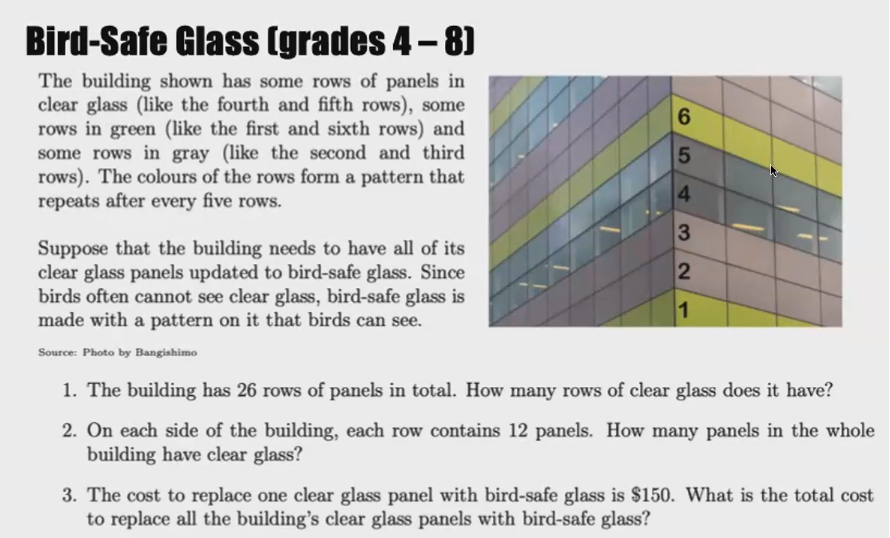Summary of SyMETRI Meeting: June 10th, 2024 by Stéphanie La France
Presenter/Guest Speaker: Judith Koeller from Peace and Conflict Studies, University of Waterloo
Date: June 10th, 2024
Host: Dr. Cynthia Nicol
At the SyMETRI meeting on June 10th, 2024, Judith Koeller shared about her work at The Centre for Education in Mathematics and Computing (CEMC). The CEMC has had many conversations with teachers who are Indigenous, and teachers who teach in Indigenous communities about how the CEMC could support the calls of the Truth and Reconciliation Commission. Judith emphasised the importance of language noting that it is a vital part of culture, and that colonialism has and continues to contribute to language suppression. Similarly, math has an impact and a role to play which raises many issues and implications for Truth and Reconciliation in math education.
In planning for, designing and sharing the Problems with Purpose series, the CEMC wanted to focus on contextualizing mathematics problems in a way that highlighted our collective responsibility and aligned with the TRC Calls to Action. This meant collaborating with teachers and educators who identify as Indigenous to create two volumes of math problems. One theme that emerges and reemerges is that math lacks context much of the time and that a focus of math on the lived experience and day to day life from which math emerges. Through the process, the CEMC commissioned IndigiQueer Anishinaabe artist Bangishimo (they/them) to take photos from which math problems would be developed including a photo of Bird Safe Glass. Additionally, Dr. Ed Doolittle from First Nations University provided inspiration for a math problem centred around the Cree language.
In discussion about the presentation, Judith shared that a good math problem is open-ended with low floor-high ceiling, aligns with curriculum, includes accessible wording and includes information in both pictorial/diagrammatic and text form. She shared that one of the challenges is that as soon as you get a rich context the problem text often becomes too wordy. Additionally, writing and creating problems that honour Indigenous knowledges and avoids appropriation involves an ongoing process of learning, tweaking, and reflecting. The CEMC hopes to continue developing math problems for Grade 3-12 and lead enrichment and curriculum work in collaboration with volunteers. After this wonderful session about creating purposeful math problems, we are left inspired to contemplate: How do we create a meaningful story/hook in a problem? Why do/should we care about meaningful context in math problems? What is the emotional and lived connection that we might bring into the learning and doing of math?
Here are some photos of Judith’s presentation:
For more information, see the following resources:
CEMC Problems with Purpose website: https://cemc.uwaterloo.ca/resources/problems-with-purpose.php
IndigiQueer Artist Bangishimo’s website: https://www.bangishimo.ca
Video of Dr. Doolittle’s talk that inspired a math problem: https://www.youtube.com/watch?v=wZ-ctdoj_mM
Bio
Judith Koeller has been on faculty at Waterloo since 2003, before which she worked in the high tech industry for seven years. Along with teaching in the Math undergrad and Masters for Mathematics Teaching programs, she conducts workshops in Mathematics for high school students and teachers, across Canada and internationally. She is particularly interested in how math can make a difference in the world, and the implications of Math for peace.


